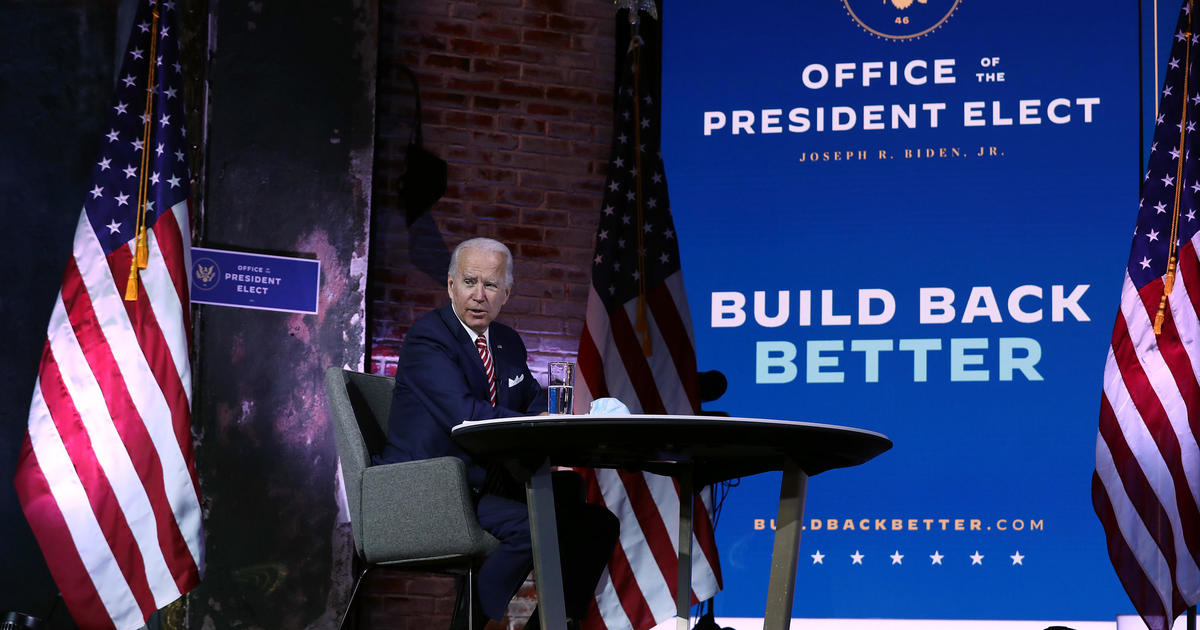Two members of President-elect Joe Biden’s COVID-19 advisory board are pushing back against the idea of a nationwide lockdown to stem the upsurge in coronavirus infections.
Dr. Vivek Murthy and Dr. Atul Gawande both downplayed the need for the government to impose broad limits on business and social gatherings, instead stressing local responses such as New York City’s restrictions on neighborhoods with high rates of the disease.
“We are not in support of a nationwide lockdown,” Gawande, an author, surgeon and professor at Harvard Medical School, told ABC’s “This Week with George Stephanopoulous” on Sunday. “There simply isn’t a scenario [for nationwide restrictions] because we can get this under control.”
Gawande spoke about the importance of targeted measures such as universal mask-wearing as well as local restrictions on socializing.
“You can have targeted measures building on mask-wearing to include widespread testing, to include dialing up and down capacity restrictions; and those measures need to happen in a more localized basis,” he said.
Gawande used the example of New York, which designates “clusters” of coronavirus outbreaks within particular neighborhoods and imposes restrictions on gatherings for viral hotspots, with fewer rules in surrounding areas.
“On a zip code-by-zip code basis, you can deploy different restrictions in order to get the virus under control. And it’s quite effective,” Gawande said. “We do not need to go into a nationwide shelter-in-place shutdown.”
Dr. Vivek Murthy, the surgeon general under former president Barack Obama and co-chair of Mr. Biden’s COVID-19 board, struck a similar tone on “Fox News Sunday.” Asked by host Chris Wallace whether a nationwide lockdown would be needed if COVID-19 cases increased, Murthy said, “That’s a measure of last resort.”
“If we just lock down the entire country without targeting our efforts, then we are going to exacerbate the pandemic fatigue people are feeling. You’re going to hurt jobs and the economy, you’re going to shut down schools and hurt the education of our children,” Murthy said. “So, we go to approach this with a precision of a scalpel rather than the blunt force of an ax.”
New restrictions imposed as COVID cases surge…
02:05
Like Gawande, Murthy emphasized the importance of local restrictions. He also decried the lack of national guidance to help states and cities make these decisions.
“The reason that you see so much variation in what states are doing is that we don’t have a national alert system guided by the best possible evidence,” Murthy said.
The coronavirus advisers’ views were at odds with Dr. Michael Osterholm, another member of Mr. Biden’s task force who last week floated the idea of a national lockdown to help contain the virus. “We could pay for a package right now to cover all of the lost wages for individual workers, losses to small companies and medium-sized companies, for cities, states, county governments,” Osterholm told Yahoo! Finance.
While a national lockdown would likely help curb infections, “There is not an appetite for that, and it’s a very blunt measure,” said Lindsey Leininger, a professor at Dartmouth’s Tuck School of Business who studies health care policy.
“We know what’s propagating the pandemic at this point is shared indoor air. We didn’t know that back in March. In March we were wiping down our groceries and worried about bikers passing us on the street,” she said.
Vaccine trials “give us hope,” doctor says
03:07
Leininger said restricting certain kinds of activities, such as large indoor gatherings or indoor dining, is one way to curb the virus. But she noted that state and local authorities are in a better position than federal policymakers to impose such restrictions.
“What that actually looks like is probably going to be different in Mississippi than in Manhattan,” Leininger said. “That’s how our health policy is wired, and how our whole society is wired, frankly.”
Some states have slowly reimposed restrictions on businesses and limited the number of in-person gatherings to cope with the surge in COVID-19 cases, which continues to set records. Washington state is limiting capacity at indoor businesses, doing away with indoor dining and telling residents to avoid out-of-state travel.
The governor of North Dakota, one of the hardest-hit states, issued a mask requirement on Friday after months of resisting such a mandate. The state on Saturday had just 178 free hospital beds and 18 intensive-care beds available, according to the Associated Press.
On “CBS This Morning,” Osterholm warned that the country is entering “the most dangerous period” it has faced since the outbreak of influenza in 1918. He also said that a lack of economic support was hampering the U.S.’ ability to respond to the pandemic.
COVID-19 case surge threatens the U.S. econom…
02:14
“We are really at a disadvantage because if we’re going to ask people to suffer for this from an economic standpoint — meaning shutting down their businesses; people being unemployed; city governments, state governments no longer able to fund many of the very essential workers like fire, police — we need economic support to take care of that if we are also to take care of the pandemic,” he told CBS This Morning’s Anthony Mason.
It’s a worry shared by economists. In a research note, analysts at Raymond James said that Dr. Anthony Fauci’s prediction this summer that the U.S. would see 100,000 cases per day was “turning into a goal instead of a threat.”
“Significant, and in our opinion underappreciated, economic damage resulting from this latest swell is possible without a meaningful fiscal relief package from Congress,” they wrote.
